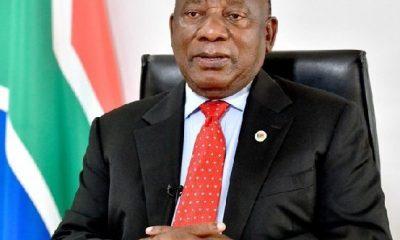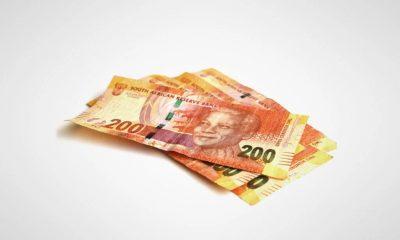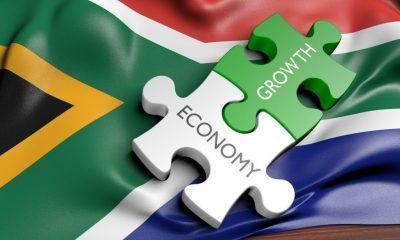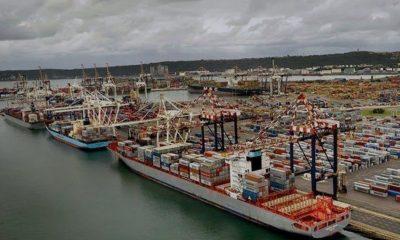z_Uncategorised
South Africa’s 2025 Budget Faces Major Shortfall Due to Unrealistic Growth Forecasts
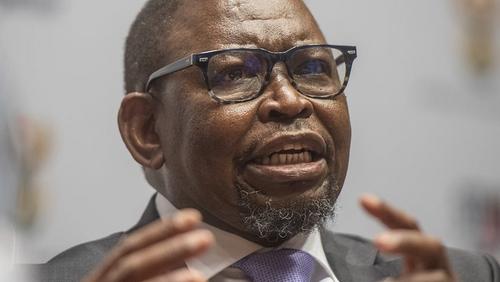
In a disconcerting turn for South Africa’s fiscal future, Finance Minister Enoch Godongwana’s optimistic forecast for real economic growth in 2025 may be significantly off the mark. The National Treasury’s projection of a 1.9% growth next year could create a massive hole in the country’s 2025 Budget, leading to higher deficits and more borrowing.
A Misguided Forecast?
In the 2025 Budget Review, the National Treasury predicted average economic growth of 1.8% for the period from 2025 to 2027, underpinned by factors like improved investor confidence, a stable electricity supply, lower interest rates, and a declining risk premium. The Treasury also forecast that the budget deficit would shrink to 3.5% of GDP, while the debt-to-GDP ratio would stabilize at 76.2% in 2025/26 before declining in the years to come.
These projections, while optimistic, have come under increasing scrutiny as other economic experts highlight troubling signs of slower-than-expected growth. The Treasury’s growth forecast paints a rosy picture, but the reality of South Africa’s economic challenges suggests that 1.9% growth may not be achievable.
The Global Downturn and Its Impact
Globally, economic conditions have taken a hit, especially with US President Donald Trump’s tariffs that have shaken financial markets. The International Monetary Fund (IMF) recently slashed South Africa’s economic growth forecast to just 1%. This marks a stark contrast to the National Treasury’s predictions, further casting doubt on the country’s ability to meet its growth targets.
In its April update to the World Economic Forecast, the IMF pointed to the negative ripple effects of Trump’s tariffs, which have affected global trade and led to downward revisions for many economies, including South Africa. This downgrade was echoed by the South African Reserve Bank’s Monetary Policy Committee (MPC), which also cut its forecast for 2025 growth from 1.8% to 1.7%. The MPC warned that downside risks could further push the growth rate lower.
Economist Dawie Roodt’s Caution
Dawie Roodt, the chief economist at Efficient Group, has voiced similar concerns. Initially predicting 1.5% GDP growth for 2025, Roodt revised his outlook downward after the appearance of new economic headwinds such as US tariffs, the loss of AGOA benefits, and political instability within South Africa’s Government of National Unity (GNU).
Roodt believes that 1% growth is more realistic for South Africa’s economic future, and warns that, in a worst-case scenario, growth could be even lower. He further explains the severity of the issue:
“This growth is very bad, as the finance minister depends on economic growth to fund South Africa’s large state machinery,” Roodt added. Without the 1.9% growth forecasted by the National Treasury, the country will face significant shortfalls in revenue collection, leading to higher government deficits.
The Potential Budget Crisis
If South Africa’s economy grows by only 1%, as the IMF and Roodt expect, the 2025 Budget will likely suffer from a substantial revenue gap. With fewer resources, the government would be forced to borrow more, worsening the country’s already high debt levels and further increasing the debt-to-GDP ratio.
This could set off a downward economic spiral: a larger deficit leads to more borrowing, which increases debt, and the cycle continues. Without a shift in policy efficiency and economic growth strategies, the 2025 Budget will likely fail to meet its targets, hurting the nation’s financial stability.
The Path Forward: Policy Reform Needed
To avoid this fiscal crisis, South Africa must urgently focus on improving state efficiency and implement policies that support sustainable economic growth. According to Roodt, these policies should include bolstering the private sector, improving investment conditions, and addressing the inefficiencies that plague the state.
“Unless this is done, South Africans will continue getting poorer, and the wealthy will keep leaving due to a lack of opportunities,” he said.
In the face of external and internal challenges, it is clear that the National Treasury’s economic growth expectations need a serious reality check. Failure to do so could lead to an even more difficult economic landscape for the country in 2025 and beyond.
While the National Treasury’s optimistic growth forecast for 2025 presents an encouraging outlook, external and internal economic pressures suggest that South Africa’s growth could fall far short of expectations. If the economy only grows by 1%—as many experts predict—the 2025 Budget will face significant shortfalls, leading to higher deficits and further debt accumulation. In order to avoid a fiscal crisis, the South African government must implement urgent economic reforms and work towards creating an environment conducive to long-term growth.
{Source: Daily Investor}
Follow Joburg ETC on Facebook, Twitter , TikTok and Instagram
For more News in Johannesburg, visit joburgetc.com

